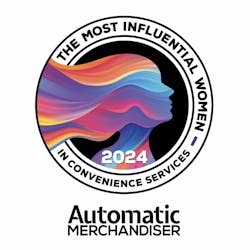Vending operators continue to expand into OCS. While many argue that OCS requires a dedicated organization to be successful, others argue that vending operators that have not made the transition can still do it with the right plan in place.
Making the transition is harder today than in the past since OCS has become a more specialized service. The products and equipment are more complex and expensive than ever.
The operator must recognize that OCS, like vending, is a mature industry, and to be successful, the operator must be well educated about market trends.
What’s needed to get started
In OCS, as with vending, the operator must incur startup costs. While the equipment costs in OCS are lower than vending, the operator must invest in dedicated personnel, equipment, product, delivery vehicle, have dedicated space in the warehouse for storing inventory, and a dedicated area for equipment maintenance and repair.
Before the selling process begins, it is necessary for the operator to have the proper inventory of product and equipment.
Looking first at equipment, the operator must decide which types of equipment to offer. In today’s OCS market, customers want a variety of brewers: plumbed-in batch brewers, single-cup brewers, thermal servers and airpot brewers. Understanding how these different brewers work requires education.
Every piece of equipment requires its own parts lists, and this can add hundreds of individual part numbers and thousands of parts to the company’s existing inventory. In addition, space is needed to clean and sanitize the pots and brewers.
Every brewer installation will require plumbing, and because OCS deals with a larger number of smaller locations than vending, the company will have to have at least one dedicated installation and maintenance person.
On the product side, there are hundreds of OCS stock keeping units, including coffee, tea, cups, sweeteners, creamers, and more. Many OCS operators today also provide single-serve cold beverages and snacks. This inventory requires extra space in the warehouse.
Space must also be dedicated to picking OCS product in the warehouse.
Dedicated deliveries are needed for OCS. It is not possible for a vending driver to handle OCS on the vending route.
In OCS, someone has to either visit or pre-call every customer, according to a preset schedule, to determine the customer’s needs, then write an order. The individual order must then be picked in the warehouse and loaded onto the truck for timely delivery. An accurate invoice needs to be prepared using the prices that are currently in effect for the customer.
The potential OCS customer base is larger than vending, but the task of selling to this audience is more time consuming.
OCS requires its own accounting. Because customers are invoiced, the operator must monitor accounts payable.
The vending operator expanding into OCS must recognize that OCS is a business unto itself. He will only be successful in OCS if the OCS division is operated as an independent profit center.




